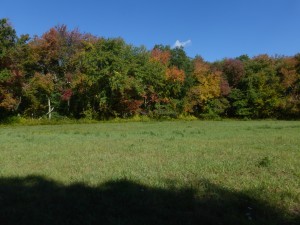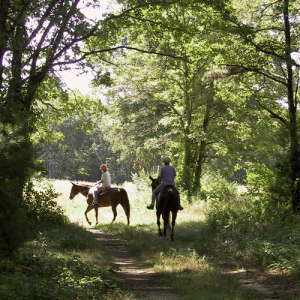South Farm Pays Its Way and Will Provide Fiscal Benefits for Generations to Come
The following letter appeared in local newspapers and is shared with us here by the author Cliff Vanover *.

Charlestown purchased South Farm Preserve in 2002 from owners who were retiring after generations of farming and forest management. Had the land not been purchased by the town for conservation and passive recreation, the landowners were ready to sell the land to a developer who would have subdivided and built an estimated 14 houses.
The money to buy South Farm Preserve was raised with a $300K grant from the RI Department of Environmental Management (DEM), and $450K from the Town of Charlestown Open Space Bond Fund. DEM retains a conservation easement on the land so that a future town government can’t change the use away from conservation or sell the land for development.
As a referendum approaches on $2M to replenish Charlestown’s Open Space Bond Fund, there are a few people opposed to land conservation and public access that make claims and complaints about the cost of land preservation.
What would the cost or benefit have been to the town if South Farm had been sold to developers in 2000 instead of entering negotiations for preservation with the town?
It’s fairly easy to calculate net tax raised or lost from residential development. Tax revenues raised are based on the tax rate multiplied by the house assessment (value). The community costs of supporting the development are a function of household size, and school and municipal costs.
Charlestown has a town wide average household size of 2.46 individuals. In the northern part of town where South Farm is located, family size is closer to 2.59.

I calculated the cost of development for household sizes from 2.3 to 2.5 and a home value of $350K. If South Farm had been subdivided into 14 house lots in 2002, the net tax loss over those years would be $465K for an average household size of 2.3 to $930K for an average household size of 2.5. This doesn’t include other fiscal benefits such as the positive effect open space has on surrounding property values or the contribution it makes to tourism.
By offsetting the tax loss from new residential development, South Farm Preserve has already more than paid back the Town’s initial investment and will now continue to provide a fiscal benefit for generations to come.
South Farm Preserve was created to provide wildlife habitat, to preserve the agricultural history of Charlestown, to protect groundwater, and to create public access for hiking, snow shoeing, cross country skiing, and horse back riding. The positive fiscal impact was not a primary motivation for the purchase, but it certainly provides evidence that open space can pay for itself.
To continue acquiring protected open space and enjoying long term fiscal benefits we need to pass Question 1 on the June 1st ballot to provide the town with a continued source of open space matching funds.
* Cliff Vanover is currently a member of the Charlestown Zoning Board. He previously served on the Charlestown Conservation Commission where he authored the grant that won Charlestown $300K from DEM towards the purchase of South Farm.